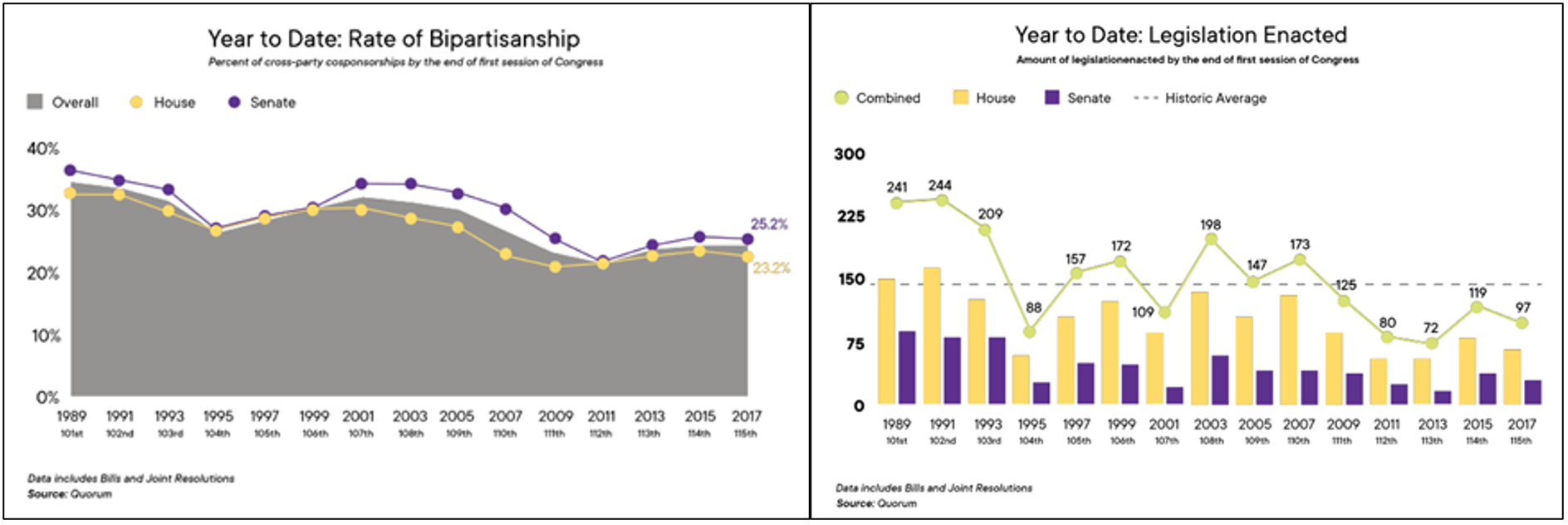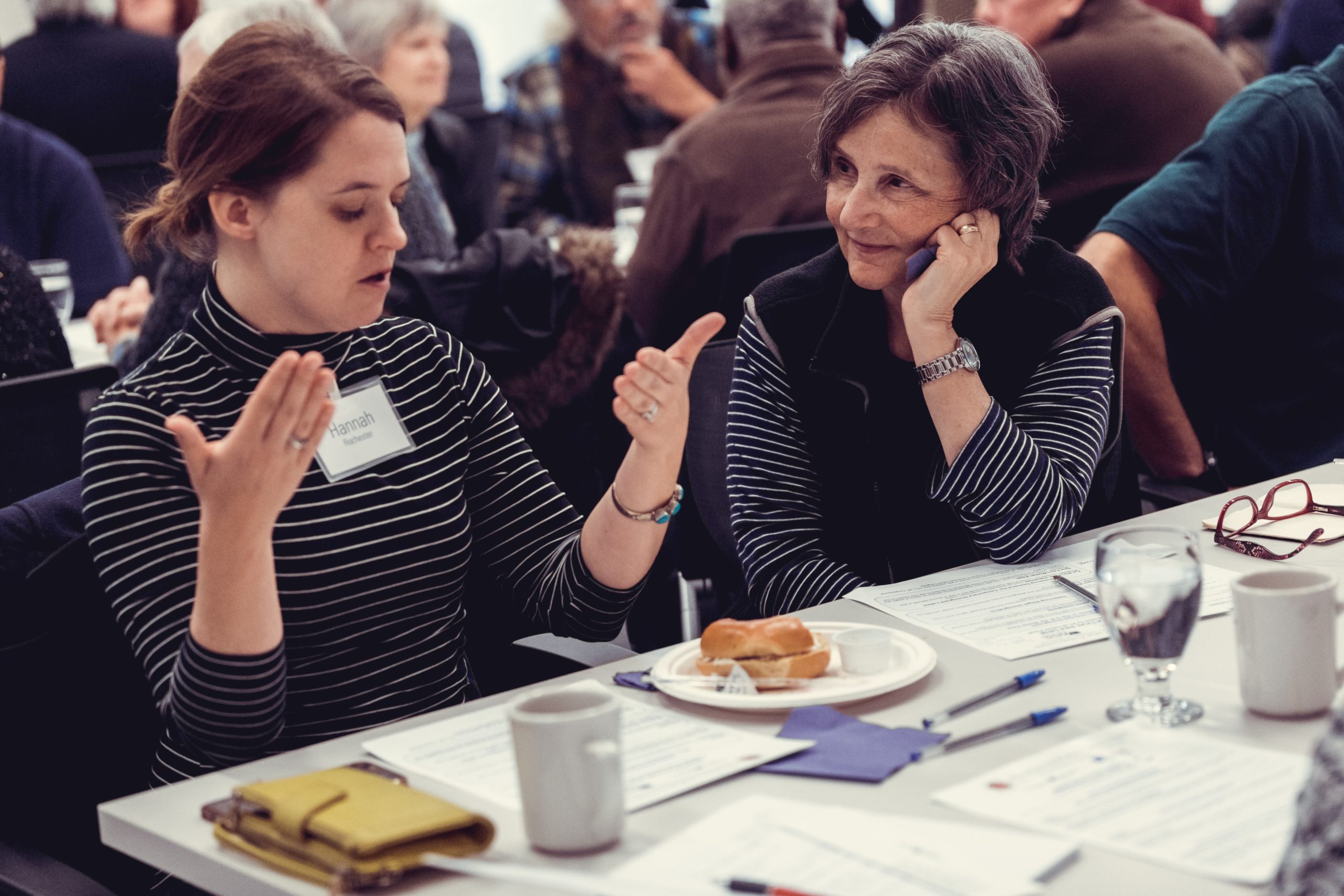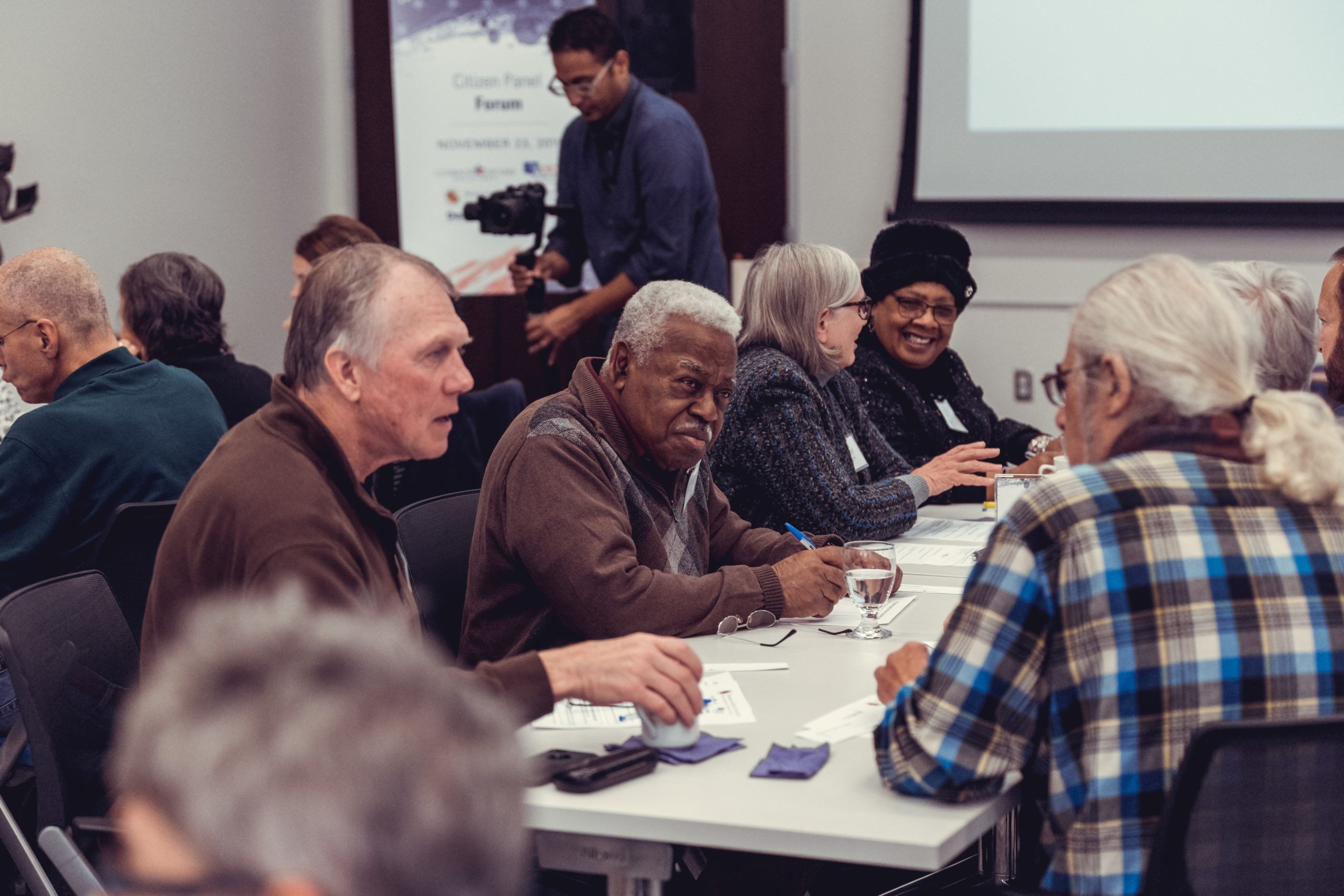Political polarization has been on the rise for decades and it’s limiting our ability to address some of the vexing problems of our time. Differences of opinion on policy issues concerning national security, the economy, public health, education, etc. are not new and are even important to a well-functioning democracy.1 Less normal and more troubling is a relatively recent trend of seeing members of the opposing party as antithetical to American values and even dangerous. According to the Pew Research Center, roughly 80% of both Biden and Trump supporters say that “Not only do we have different priorities when it comes to politics, but we fundamentally disagree about core American values.”2 Another poll by the Washington Post and the University of Maryland found that “about 1 in 3 Americans say they believe violence against the government can at times be justified.”3
With this level of vilification, it’s understandable that our politics have become dysfunctional. The graphs below show the decrease in bipartisan legislation being introduced in Congress, as well as a drop in the amount of legislation being enacted. While this gridlock persists, issues like public health, income inequality, public safety and climate change continue to impact the lives of everyday Americans.

 To break through the partisan bickering, organizations like Civic Genius have turned to deliberative democracy. According to the Center for Deliberative Democracy, the approach “Brings people from varied backgrounds together for a moderated discussion about issues that members of the general public say matter to them. Participants are asked to put their political labels aside and to instead consider the different sides of an argument.”3 A handful of organizations have tried various forms of deliberative democracy, successfully making connections, opening hearts and minds, and finding common ground for action.
To break through the partisan bickering, organizations like Civic Genius have turned to deliberative democracy. According to the Center for Deliberative Democracy, the approach “Brings people from varied backgrounds together for a moderated discussion about issues that members of the general public say matter to them. Participants are asked to put their political labels aside and to instead consider the different sides of an argument.”3 A handful of organizations have tried various forms of deliberative democracy, successfully making connections, opening hearts and minds, and finding common ground for action.
Civic Genius is looking to take deliberative democracy a step further by equipping participants, who have found common ground through a deliberative process, with the tools, resources, and connections they need to then advocate for their agreed upon recommendations.
Their program, It’s Your America, seeks to:
- Depolarize partisan attitudes.
- Establish local chapters across the U.S. for people to connect constructively across political and social differences on key issues.
- Create a politically and socially diverse community that cultivates a sense of belonging and shared identity and motivates sustained engagement.
- Foster, support, and galvanize joint civic action toward common ground political goals.

What makes the program unique is the direct connection to decision-makers and experts that they are able to facilitate through a partnership with the Convergence Center for Policy Resolution. Convergence Center for Policy Resolution convenes key national leaders to jointly develop recommendations on major issues while Civic Genius runs citizen problem-solving events congruently. These dialogues create a feedback loop between grassroots participants and grasstops decision-makers, resulting in common ground solutions.
To get involved, contact Todd Levinson at Todd@OurCivicGenius.org.
- Stavrakakis Y. Paradoxes of polarization: democracy’s inherent division and the (anti-) populist challenge. Am Behav Sci. 2018;62:43–58. [Google Scholar]
- Pew Research Center. (2020, October 8). Only about one-in-five Trump and Biden supporters say they share the same core American values and goals. Pew Research Center – U.S. Politics & Policy. [Pew Research Center]
- University, S. (2021, June 18). Could deliberative democracy depolarize america? Stanford News. Retrieved February 28, 2022, from https://news.stanford.edu/2021/02/04/deliberative-democracy-depolarize-america/



